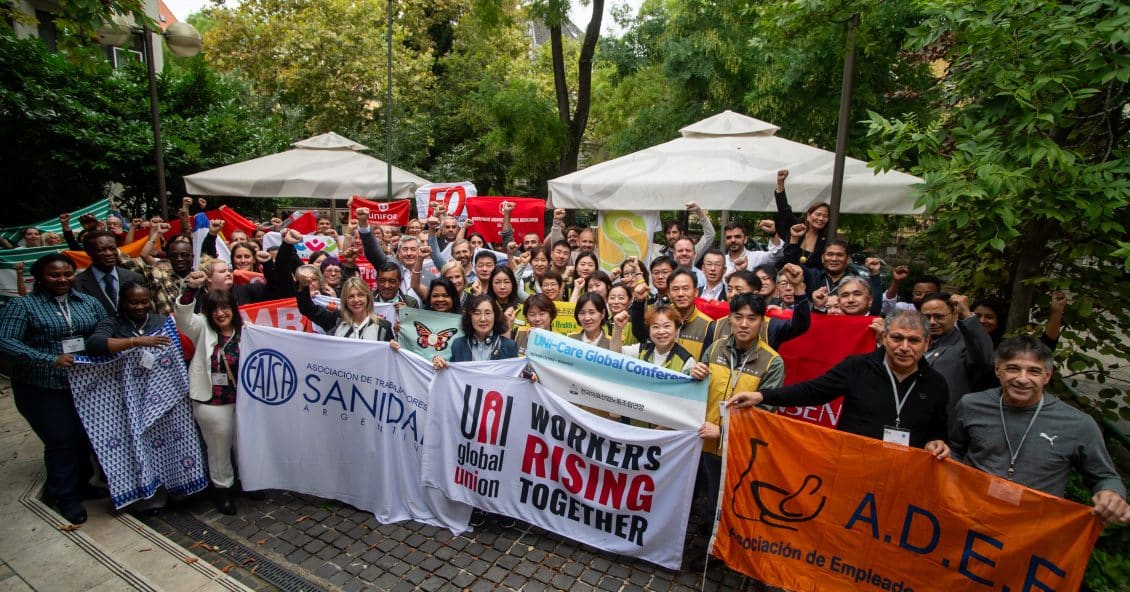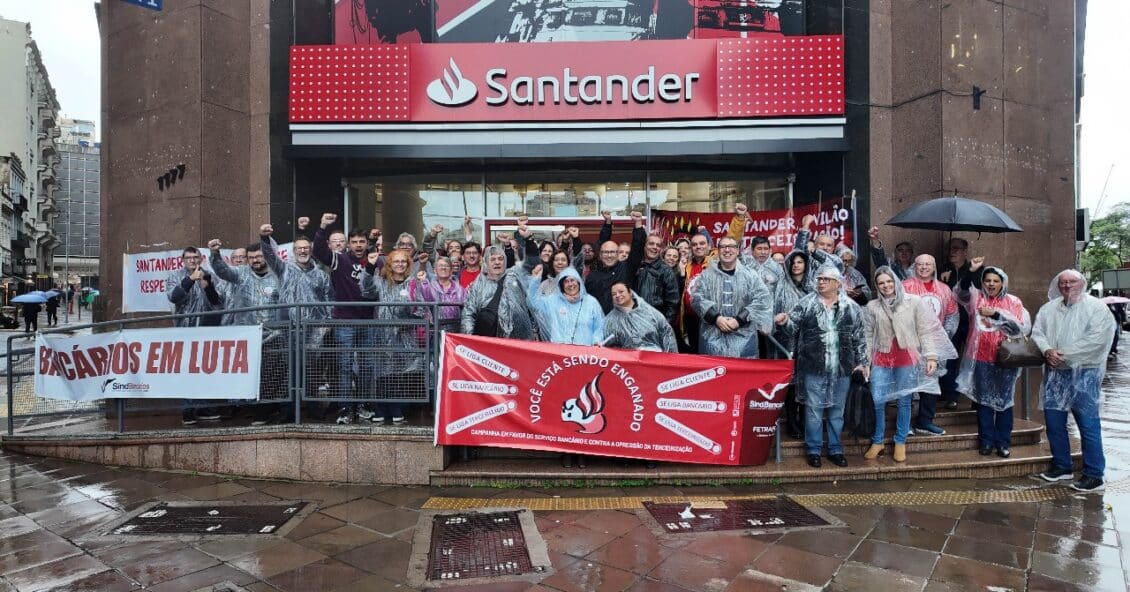Care workers rising together: UNI Care World Conference strengthens fight for dignity
24.09.24
Last week in Budapest, UNI Global Union convened its UNI Care World Conference, to bring together care workers, trade union leaders and activists from 52 unions in 37 countries to build strength, elect their new leadership committee and adopt strategic priorities for the next four years.
UNI trade unions from Poland to Peru are fighting for fair wages, better working conditions and recognition of the essential work they do. The conference heard how, across the world, care workers are winning victories that are reshaping the future of care through organizing, collective bargaining and implementing global agreements.
In her opening remarks, UNI Global Union’s General Secretary, Christy Hoffman, reflected on the time
“We learned as we always do that we don’t get anything without fighting for it and that only those workers with a union and collective bargaining will be able to come together and win. We saw during the pandemic the difference that a union made and these statistics were very powerful. Fewer deaths, better staffing – all of the elements that make work safe were stronger where the workers had union representation,” said Hoffman.
So proud of our committee member – Jakky who spoke today at @uniglobalunion Care Conference on the impact of COVID and how HC-ONE workers organized and got sickpay from day one for all staff within their homes. #PowerInAUnion #MembersWins #GMBUnion https://t.co/KnNqXYzT5G
— GMB National Care Committee (@GMBCare) September 18, 2024
Aging populations are placing a surge in demand on care workers, intensifying the already well-documented staffing shortage crisis. Despite their vital role, these workers often face the most precarious and unstable working conditions.
Head of UNI Care, Alan Sable, stressed the need for international collaboration among unions. “The care crisis is a global issue. We are seeing the same patterns of exploitation – low wages, understaffing and burnout – across continents. Our strength lies in unity. When care workers unite, we can push for systemic change,” Sable stated.
Congrats to Matt Yarnell, President of @seiuhcpa, on his reelection to the board of UNI Care Global @uniglobalunion. Representing SEIU, Matt is working with unions around the world to organize workers in long-term care. When we fight globally, we win globally! https://t.co/eN9DEaIKYF
— Rocio (@SEIU_Saenz) September 20, 2024
The conference was honoured to welcome Gergely Karácsony, Mayor of Budapest, at the opening ceremony, who stressed the importance of trade unions to achieve change in society.
Other keynote speakers included Nicholas Pons-Vignon from the SUPI research institute in Switzerland, who highlighted the importance of putting workers at the heart of the promotion of quality care, as well as Michelle McIsaac, Technical Officer at the World Health Organization, who emphasized how health and care work is vastly undervalued. As a highly feminized sector, the double pay penalty in health and care work of lower sector-specific pay, compounded by women’s relatively lower pay across the sector, drives down the value of health and care work for all workers.
The conference held in-depth and informative discussions on issues at the heart of the care economy include the fight for safe staffing, violence and harassment, and defending public health and social security. Ferenc Köves, President of our Hungarian host union, Szad, highlighted the organizing wins of care workers in his country who face these same challenges.
📌Conferencia #UNICare #Budapest @uniglobalunion pdta @fenassap @gloflowers abordó el rol del sindicalismo en la vigencia del #C190 en🇨🇱 “nos unimos para contar con una herramienta que obligará a instalar una nueva cultura del trabajo, sin la violencia, muchas veces normalizada” pic.twitter.com/1Fm9DNLf15
— FENASSAP (@fenassap) September 18, 2024
Furthermore, as multinational care providers increase their dominance in the sector, the conference paid special attention to efforts to organize in these companies, in particular at the German global healthcare company, Fresenius. The conference also focused on organizing and formalizing community healthcare workers in Latin America and Asia, assessing the impact of and need to organize migrant workers in both their origin and destination countries.
Miguel Zubieta from Argentinian healthcare union, FATSA, was re-elected Global President of UNI Care, along with a new leadership committee, to steer UNI’s ambitious agenda of action for the next four years.
These priorities include organizing workers at private care multinationals, expanding efforts to organize aged care and community health workers, building global political influence to strengthen care unions, and growing UNI Care’s strength worldwide.
“We are very pleased with the World Conference we just held in Budapest. With solidarity and organizing at the forefront, UNI Care has developed an action programme to tackle the challenges facing our sector. We are committed to building strong, united unions that amplify the voice of workers in the fight against fragmentation, informality, workplace violence, and attacks on unionization and collective bargaining. Our 2024-2028 Strategic Plan clearly lays out these and other key priorities,” concluded Zubieta.


